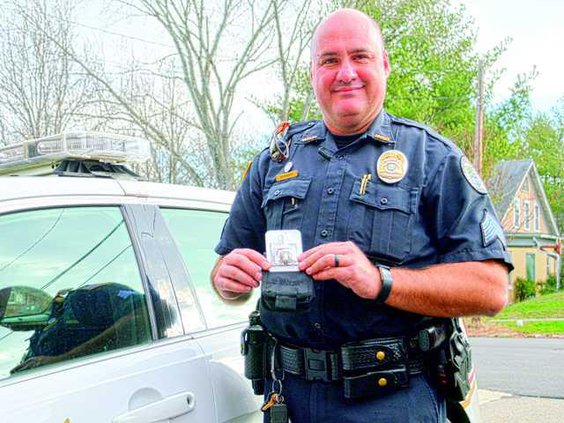McMinnville police officers and Warren County sheriff’s deputies will soon start carrying a prescription medication to help fight opioid overdoses.
Naloxone, also known as the brand name Narcan, is used to reverse the effects of an overdose of heroin or narcotic painkillers known as opioids. Paramedics and emergency room doctors have used it for years to save lives.
Police Chief Bryan Denton says once training is complete, 4 mg Narcan nasal spray will be carried by all officers and used to help an overdose victim or protect personnel who may unwittingly come into contact with these dangerous substances.
“We decided to train and utilize Narcan because of reports that rural areas are vulnerable to the fentanyl threat,” said Denton. “Each officer will be equipped and trained for its use as an aid to any OD victim and any exposure our officers and first-responders might have.”
The Sheriff’s Department has already completed training. Its investigators and school resource officers (SROs) are already carrying the nasal spray. As soon pouches are received, all deputies will follow suit.
Deaths from overdoses of narcotic prescription painkillers more than tripled in the U.S. from 2000 to 2014. These drugs now kill more people than heroin and cocaine combined.
When someone takes an overdose of opioids, the opiates overwhelm certain areas in the brain and interrupt a key part of the body’s impulse to breathe. Breathing can slow dangerously or stop. Quickly rescuing the person is crucial because prolonged, severe breathing problems can lead to brain injury or death.
Naloxone, the active ingredient in Narcan nasal spray, competes with opioids to bind with the same receptors in the brain. Usually, it reverses the effects of opioid overdose in 2 to 3 minutes.
Funds to purchase the medication and training came from the Tennessee Department of Health.








